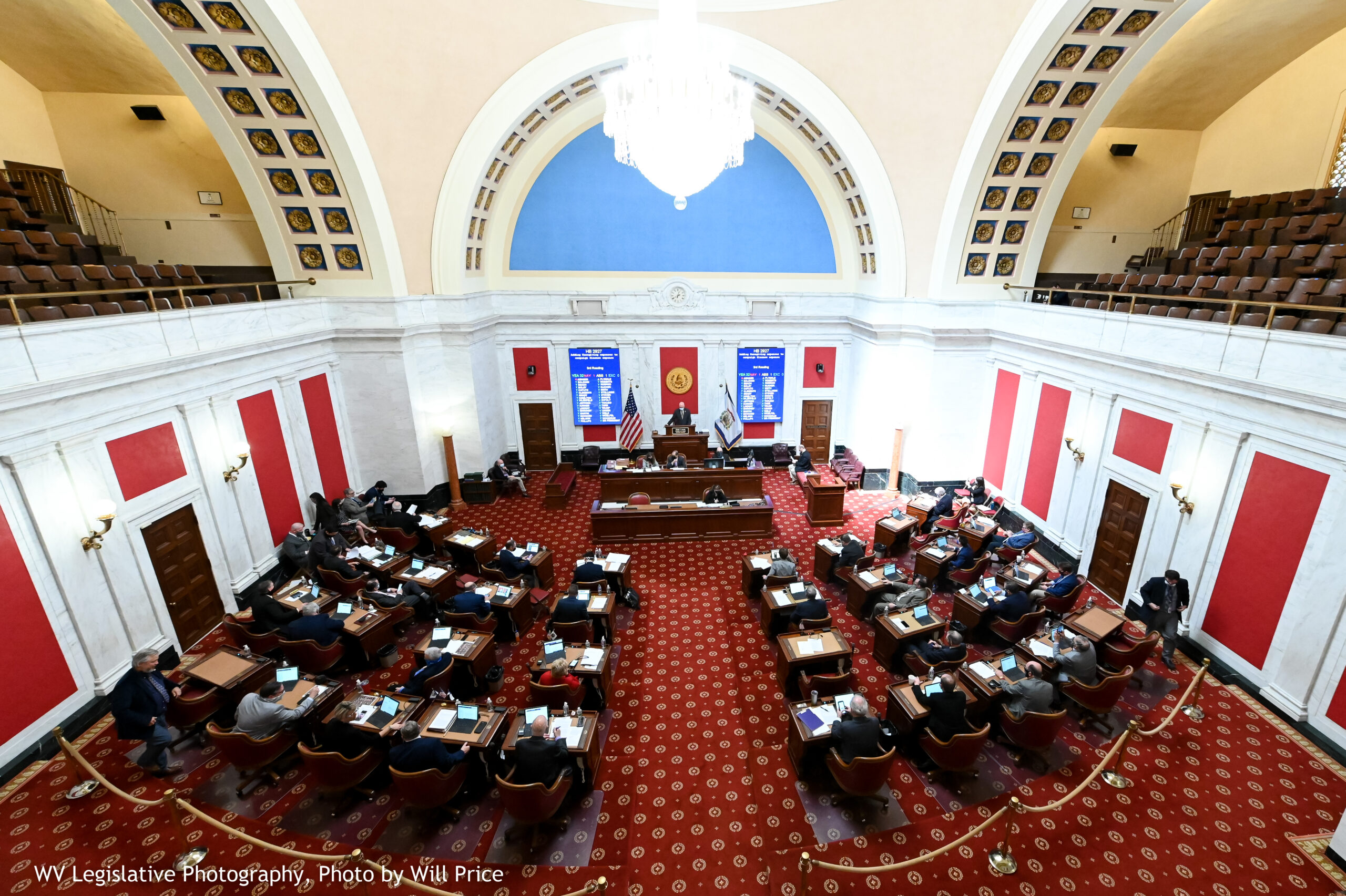MORGANTOWN – Voters in will have their say on proposed amendment to the state Constitution to keep state courts out of impeachment proceedings.
HJR 2 passed 23-11 on Friday, setting up a vote in November 2022 – though the House is working on a measure to place all constitutional amendment votes on the ballot in a special election this July.
HJR 2 would clarify that courts have no authority or jurisdiction to intercede, intervene in or interfere with impeachment proceedings of the House of Delegates or the Senate and that a judgment rendered by the Senate following an impeachment trial is not reviewable by any state court.
Sen. Mike Romano, D-Harrison, offered an amendment to narrow the scope of the resolution to legislative impeach proceedings. He argued, as he previously had in committee, that the resolution as is prevents the court from intervening in constitutional questions – such as impeaching a person based on their ethnicity. The amendment failed.
Explaining the bill, Judiciary chair Charles Trump, R-Morgan, looked back to the 2018 impeachment of members of the state Superme Court justices and what he called a substitute court’s interference that ended the proceedings.
This amendment, he said, will “fix the wreckage of the West Virginia Constitution made by the substitute Supreme Court.”
The court, he said, disregarded the plain language of the Constitution granting the Legislature sole authority over impeachment, and its own prior decisions.
The vote was 23-11 on party lines.
HB 3301 allows county commissions or municipalities to extend the duration of a tax increment financing district subject to consent of any municipality in the district.
TIFs are currently limited to 30 years. The bill would allow any TIF created before Dec. 31, 2020, to extend its TIF by five years to Dec. 31, 2050, whichever comes first.
It was said in the House that some TIF districts suffered during the economic downturn caused by the pandemic, and this will allow them to refinance their bonds if they wish.
The bill prohibits governments from retiring TIF districts early if bonds remain outstanding.
The vote was 33-0. It goes back to the House for amendment concurrence.
SB 458 is a Second Amendment protection bill. It applies to federal or state states of emergency and forbids a number of actions, including restricting lawful use or possession of a firearm, confiscating a lawfully possessed firearm or ammunition, requiring registration of a firearm or ammunition and suspending or revoking a license to carry.
The Senate concurred to House amendments and re-passed it 25-9. It goes to the governor.
SB 695 adds new restrictions to municipal annexation by minor boundary adjustment and sets new measures for de-annexation should a area wish to leave a city. It passed 25-9 and goes to the governor.
HB 2002 is intended to expand access for broadband providers. It creates the Office of Broadband under the Department of Economic Development. It allows counties and municipalities to set up their own networks and form partnerships to do that.
It passed twice. The first vote was 32-2, with Sens. Dave Sypolt, R-Preston and Randy Smith, R-Tucker opposing an amendment to it that they felt hurt rural broadband. Some hours later, they reconsidered the bill, removed the amendment and passed it again 34-0.
President Craig Blair, R-Berkeley, stepped down to address the bill. He said the was some other objection to the bill, and it was important to get it passed. But he promised to keep improving the legislation during a special session if necessary.
It goes back to the House for amendment concurrence.
Tweet David Beard@dbeardtdp Email dbeard@dominionpost.com




